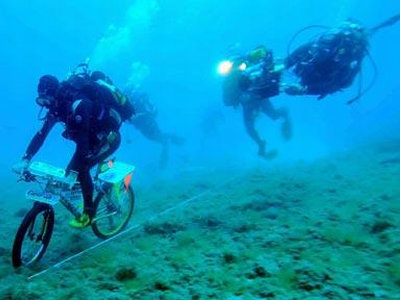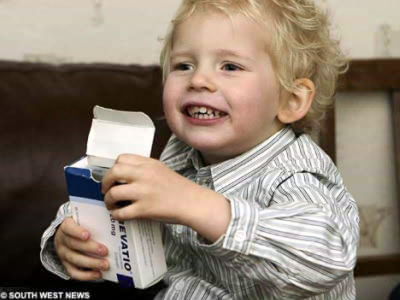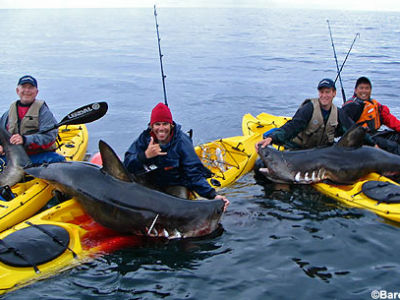When only one person in the sea drifted for 75 hours, how can I survive?

byJakob Owens
Many people have fear in the fantasy that they will be left behind in the sea as they are not helping, "a 2003 movie produced on the theme"Open Water"Was produced at a low budget of 13 million yen but eventually raised 6 billion yen in box office revenues worldwide. A case study showed what to do if the survival probability rises when it is forced into such a scary movie situation.
How to Survive 75 Hours Alone in the Ocean | Outside Online
https://www.outsideonline.com/2275116/how-survive-75-hours-alone-ocean
In February 2006,FijiRobert Hewitt, who was scuba diving near Mana Island, was swept off hundreds of meters. Mr. Hewitt was active as an instructor of diving for 20 years and it was not exchanged because of the shallow experience but when boarding to the surface of the sea it was said that the boat was already far away and could not return. After that, Hewitt kept drifting in the sea for 75 hours.
Heather Massey, a physiologist at the University of Portsmouth, investigated what happened to Mr. Hewitt who had taken a life despite drifting the sea for four days, and the change after the rescue.
The biggest problem that hit Mr. Hewitt during the drifting is "low water temperature". The water temperature at this time was 16 to 17 degrees, but according to the physiological model, the median survival time when the water temperature is 15 degrees is said to be 4.8 hours to 7.7 hours. Despite this, Hewitt was able to survive for 75 hours.
If you are in low temperature water, the reaction of 4 stages occurs largely in the human body. One is called "cold shock response", shortness of breath, hyperventilation, hypertension, etc. occur and heart work increases. Without provision, when cold shock reaction occurred, drinking water and drowning, may cause arrhythmia. However, Mr. Hewitt was diving more than 1000 times in the past, and since he was wearing a custom-made wet suit with a thickness of 5 mm, it seems that even if a shock happened, he did not develop as much.
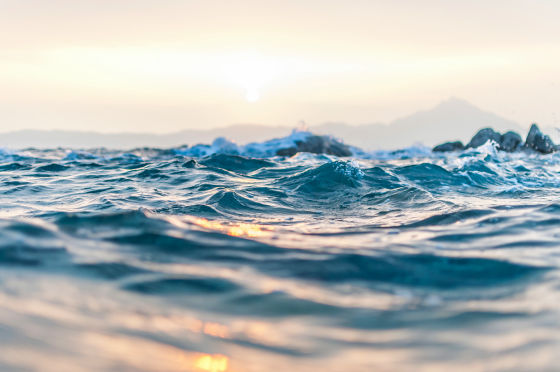
byAnastasia Taioglou
The cold shock reaction peaks in about 30 seconds, weakened after a few minutes, but the next muscle cooling reaction will occur. It is said that the muscle decreases the maximum muscular strength by 3% when the temperature decreases by 1 degree. That is, the ability to swim significantly decreases. Hewitt also failed to swim and sometimes lost consciousness,BC (buoyancy adjustment device)I was able to keep appearing from the surface of the water because I was wearing it.
And as the temperature of the muscles drops, the body will be in a severe cooling condition. When the body is extremely cooled, it affects the body and mind, eventually becoming deadly and losing consciousness. However, although it was at the stage of receiving a warm drink wrapped in a blanket after rescue, Hewitt's temperature was 35.7 degrees. This is not "extremely low body temperature" state. It is believed that Mr. Hewitt 's physique has been involved heavily.
Mr. Hewitt was a muscular man with a height of 180 cm and a weight of 99 kg, and it seemed that fat was also abundant at the same time. It is said that body temperature decreases by 0.1 degree when body fat increases by 1%, it can be said that a large Hewitt had "insulation material" for low temperature. Also, in order to avoid losing fever, taking consciously the posture of the fetus holding the knee is considered to have helped to extend the survival time.
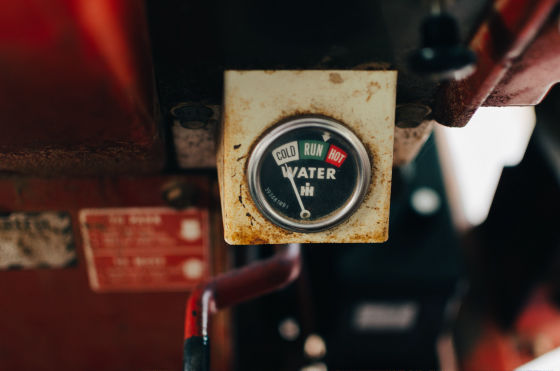
byKelly Sikkema
And even if you are to be rescued, you can not get rid of it. Often weaken when rescuing, as the nervous system responds strongly to changes in pressure when rescued from water and the idea that it is "rescued". Even when Hewitt was rescued, it was said that the rescue workers continued keeping the position level to maintain blood flow to the head, and support to "keep fighting for life" by rescue workers.
Of course, in addition to cold, dehydration caused by being in the water is also a big hazard. If you are in the water for a long time, urinating action will be accelerated by pressure due to wet suit or water even during dehydration symptoms. Therefore, when you are driven to a situation like Hewitt, do not drink water on the first day, it is important to change the hormone so that the body stores moisture. And after the second day, keep it to 500 ml per day. Hewitt seems to have drunk the wet suit jacket because of rainwater, but still he seems to have not reached 500 ml a day.
Also, when rescued, Mr. Hewitt 's skin was covered with sea lice (parasite) and it was said that he had suffered considerable damage. And 3 days of drifting had a great influence on the spirit, and on the 3rd day Hewitt said he fought with the idea of suicide.
It is a point to learn to wear fat, take a pose of a fetus, not to take moisture, but the most important thing Hewitt insists is not to diving alone. It is important to diving in the group as much as possible and avoid the state of being "swept by one person".
Related Posts:
in Science, Posted by darkhorse_log
